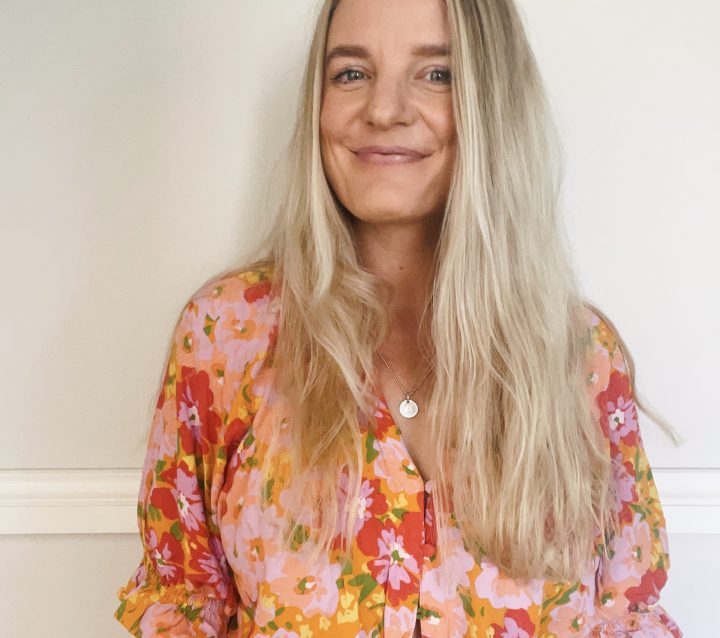Please tell us your story! How did you get to where you are today? How did you get your start in the industry?
I got my start in the music industry in a very random, roundabout way. After dropping out of Law at uni and spending years working in hospitality and various other part-time jobs; I landed the role as the Marketing Manager of the entertainment centre in Bunbury, WA. My amazing general manager Joel McGuinness had secured someAusCo (as it was known then), funding to run a series of live music gigs aimed at a younger audience, and it was my job to deliver them.
I had the most incredible time pulling those shows together, and once the program ended, I decided to start my own independent live music gigs (and eventually festivals) in Bunbury called Always Good Nights.
I ended up booking a WA tour for an east coast artist as part of Good Nights and went on the road with him as his tour manager (although I had no idea at the time that was an actual job). While on tour he asked me to manage him (again, I had no idea that was an actual job), and I said yes because saying yes to everything was my go-to move at the time. I had no real contacts in the industry, no one I knew then was in music and I was as green as green could be.
It’s not how I’d recommend entering this world, but I had to learn fast and keep up and I’m still trying to do that today.
A year or so later I booked Great Gable to play a festival in Bunbury, and as soon as I saw them play, I knew I wanted to manage them. They were fiercely independent, and it took me a few meetings and a lot of beers to convince them to bring me on board. I’m very glad they did.
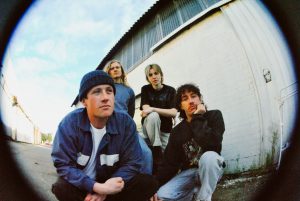
What impact (if any) has the pandemic had on your role?
I’m not sure if the pandemic has hugely impacted my role on a practical level, but it has affected how I approachmy role. Last year, due to a variety of challenging work issues including the ongoing impact of the pandemic, I got to the point where I had a pretty horrible breakdown. I was completely burnt out, and I lost all confidence in myself that I was able to do my job.
It took a long time and a lot of support to get through it and forced me to have some very real and vulnerable conversations with the band and our wider team. The band were incredibly understanding and compassionate and it made me realise that I needed to change my mindset in how I approached my job. In the past my approach to management was that I had all the answers (not that I knew it all, but that I’d be able to figure it out), that absolutely everything was my responsibility and anything that went wrong was my fault. Obviously, this is a ridiculous way to try to manage – there will always be things that are outside of our control, and even with things in our control we’ll sometimes make mistakes like any other human being on the planet.
My pandemic breakdown, while being truly horrible at the time, has taught me to be an advocate for myself to my inner critic, with the band and with our wider team. It’s changed the way I approach management, it’s helped me build a really strong support network and I feel like it’s had a positive impact on my relationship with the band in particular.
When you allow yourself to be a human being who isn’t responsible for absolutely everything then suddenly everything becomes a lot more manageable.
What issues/potential issues do you think the current Australian music industry face? Specifically in your realm of work.
There are so many issues facing the music industry right now, but one of the biggest challenges I feel is the huge reduction in funding available post-pandemic. In WA for example before the pandemic, we had an incredible
funding program available for contemporary music. It was a highly responsive and flexible program which is necessary in the ever-changing industry landscape, meaning that when an artist needed funding for touring or releases, they could always apply.
Now our WA contemporary music funding program caters only to an extremely narrow set of criteria and administrative processes which make the program dramatically less practical than it once was. For some reason in Australia contemporary music isn’t viewed in the same way as classical music, opera, jazz etc which are heavily and continuously funded.
Touring is outrageously expensive post-pandemic, especially for bands in WA who are touring nationally or internationally. With no funding to offset the costs touring will become prohibitive, which in turn significantly impacts on an emerging band & ability to build a career.
Do you feel that higher education is a necessary step to enter the music industry? Any advice for people wanting to work in your field?
Definitely not. I think the best thing to do to start a career in music is…start a career in music. Everything changes so rapidly that it’s basically impossible for industry courses to keep up.
Getting an internship, volunteering at shows and festivals and working in any way you can (ticketing work, merch selling for small local shows etc), is far more valuable in my opinion than delaying your entry into the industry by studying it from the outside.
In saying that, as a manager in particular you end up becoming at some point a booking agent, a travel agent, a bookkeeper, a marketing coordinator, a publicist, a website developer, a social media manager, a label manager, a mediator, and fifty thousand other jobs. Getting mentorship and training in any of these areas is extremely helpful in developing your career. There are also amazing programs through organisations like the Association of Artist Managers (AAM) and Australian Independent Record Label Association (AIR) that have been invaluable to me in learning more about management.
“For some reason in Australia contemporary music isn’t viewed in the same way as classical music, opera, jazz etc which are heavily and continuously funded.”
Who has been your biggest champion in your career?
I’m very grateful to have had a lot of support in my career, but one person in particular is one of my best friends, Hayley Ayres. She is an amazing manager, promoter and all-around superhuman.
Hayley has been such a champion of mine, particularly through those times when I have been completely crippled by self-doubt. She always seems to believe that I can do anything, is always spruiking me, my businesses and always (sneakily!!) putting my name in for various award noms. Everyone needs a Hayley in this job.
The other people who have been huge champions is my band, Great Gable. I’ve been with them now for 6 years, and they’ve always had my back even in the roughest of times. We had a pretty challenging few years over COVID (as most did) and if it wasn’t for them, I wouldn’t be in management anymore. They never stopped believing in me, even when I stopped believing in myself and for that I am very grateful.
What is the best piece of life advice you’ve ever received?
There are two pieces of life advice I have received that now guide how I work in management. The first is ‘you can’t care more than the artist’ [about their own career]. I wish I could remember who first told me this! So often I talk to frustrated managers who feel like they’re trying so hard to help a band/artist progress, and are coming up against the band’s own apathy, aversion to the industry, or whatever else is causing them to ignore emails/messages etc and not do the work that’s required to build a career.
The manager feels like it’s their responsibility to fix this somehow, but realistically it’s up to the artist to decide how bad they want it. It’s never going to work if the manager cares more about the artist’s career than the artist does.
Which leads into the second piece of advice which has been invaluable, told to me very early on in my career by the wonderful Leanne de Souza: ‘there will always be more artists than managers’ [so choose wisely]. It’s so tempting, especially when you first start out in management, to build a massive roster. You see a band; you fall in love with their music, and you immediately want to get on board. But there is SO MUCH WORK that goes into management, especially early on when you’re doing the fifty thousand jobs and barely getting paid. It’s so important to find the right artist/s to work with. It’s a brutal reality that for every band you work with there’s hundreds coming up right behind them without management, so if working with a particular artist is continuously difficult and stressful, I always tell people to (kindly and with compassion) move on.
I feel like a lot of artists should value their managers far more than they do, especially with how the management role has shifted in the current industry.
What is your big picture career goal?
My big picture career goal is to get the band (and myself) well set up for the future. I want them to have the same long-term financial security, the same amount of superannuation, and the same benefits that they would have had in a different career. The music industry is so chaotic, and we’re always chasing the next short- or mid-term goal in touring, release plans, deals etc so it’s easy to forget about the future. Focusing on the next big win for an artist is way more exciting than focusing on getting set up for some distant point in 20 years, and quick cash from a label deal today can be way more appealing than reading the fine print to see what happens to your music at the end of a term in 10+ years time. Same goes for management – the week-to-week is so hectic, and we get so laser-focused on building an artist’s career that we often don’t think about what happens if the artist wants to take a break, or if they want a new manager, or if they want to quit music altogether at some point in the future.
*A great quote I read about this is that,“at times, management can be analogous to building a house on somebody else’s property.”
There can often be very little long-term job security in management, and this is something that has become increasingly clear to me over the past few years.
I’m very fortunate to have created with Great Gable a fairly unique set-up that does ensure that I’ll be equally looked after into the future. I also try to keep the long-term front of mind in all the decisions we’re making now.
Who are your role models in the industry be they local or international?
Honestly, I have too many to name. What I can say is that all my role models are managers who have developed and worked with their bands or artists long term. I love seeing artist & amp; manager relationships that are so solid, where there is a lot of care from both sides to make sure everyone is looked after and not just what the next big thing will be.
Where do you go to see shows and who are some local artists you’d recommend we keep an eye on?
Local Perth venues I love:
The Bird
The Rosemount
The Mojos
Local WA artists I’d recommend keeping an eye on:
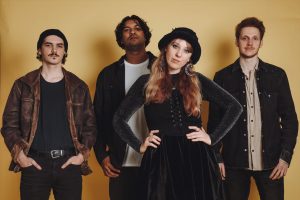
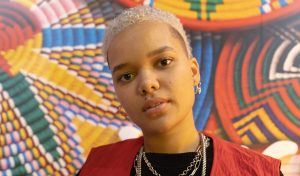

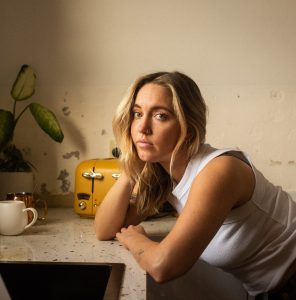
What has been the best gig that you’ve ever seen?
I’ve seen too many amazing gigs and amazing bands to narrow it down. But in terms of favourite shows – one of my favourite that I’ll never forget was at Meow in Wellington, on Great Gable’s first tour to NZ. The show was sold out, and the crowd were massive super fans singing along to every song. It’s a special feeling when you fly to another country for the first time (even just over the ditch to NZ!!) and play to a crowd like that. It was also one of those amazing moments you have with a band where you can physically see all your hard work starting to pay off.
How do you manage work/life balance?
I’d love to say I’ve figured this out but it’s still definitely a work in progress. My event business Always Good Nights has picked up hugely this year, so it’s been one of the busiest periods in a long time. I’ve also been on the road for work for most of this year which I absolutely love, but also makes work/life balance a bit of a challenge.
I’ve blocked out three weeks in December for some proper downtime, which I am protecting fiercely. One of my goals in 2024 is to bring someone else onto my team, because I just can’t do all the things I want to do and maintain my sanity.
“When you allow yourself to be a human being who isn’t responsible for absolutely everything then suddenly everything becomes a lot more manageable.”
Any tips for a quick ‘pick me up’ if you’re having a bad day?
I always get on the phone with another manager to chat through things when I’m having a bad day. Management (especially when you’re independent), can be incredibly isolating and often when things are going wrong it’s easy to feel like a massive failure. Talking to other managers puts things in perspective, and reminds me that for every challenge I face, other people are going through or have been through the exact same thing.
The opposite of depression is connection (read Lost Connections by Johann Hari if you haven’t already!!!) and I’ve been fortunate to connect with an amazing group of Australian managers over the past few years who I can turn to anytime for support. There is no other job that is quite like management, so talking to other managers who get it, is the
quickest pick me up that I have.
What does the rest of the year hold for you? Anything exciting you can tell us about?
The rest of the year in terms of work should be fun – Great Gable have a bunch of different hometown shows including two nights supporting Matt Corby at the Fremantle Prison.
I’m also moderating a few panels at WAMCon this week, running a small boutique Always Good Nights festival in Bunbury at the end of November and trying to get super organised for the first half of next year so I can take my three weeks off at the end of December!
2024 New Year & new resolutions. What do we look forward to seeing from you in 2024?
2024 is already looking a little crazy – I’ve booked fifteen Good Nights shows over the first few months across regional WA everywhere from Bridgetown to Port Hedland, so I will be clocking up some serious kilometres on the road. It’s so great to see more and more regional places embracing these shows, and I’m looking forward to continuing to expand them.
We had some huge transitions in Great Gable in 2023, with our beautiful founding drummer Cal Guy leaving the band after 8 years to pursue his career outside the music industry, and the phenomenal Madi Hanley stepping into fill his shoes. She has fitted seamlessly into the band and it’s an absolute delight to have her.
We’ve got some incredible new music coming in early 2024 which I am so excited to get out in the world. Our main goal for the band for next year is to tour as much as possible, so they’ll be heading to NZ, UK, Europe and back around Aus a couple of times I think!!
Seeing them play live is still the greatest thing ever, and after the past few years I definitely don’t take it for granted.
